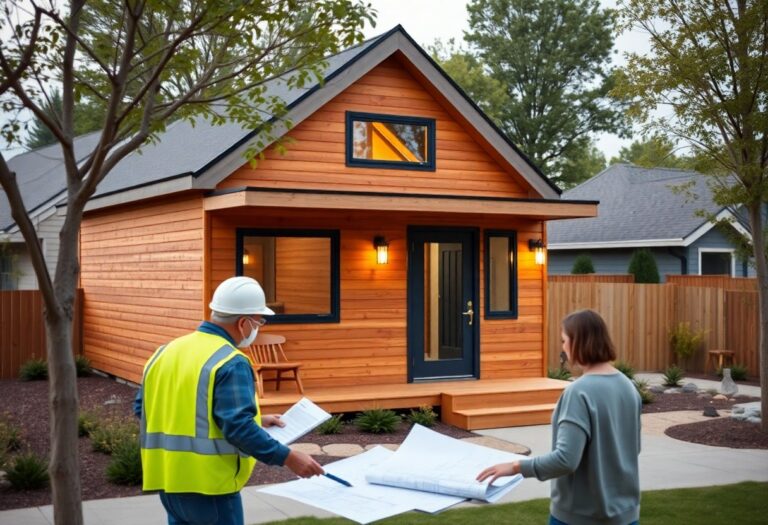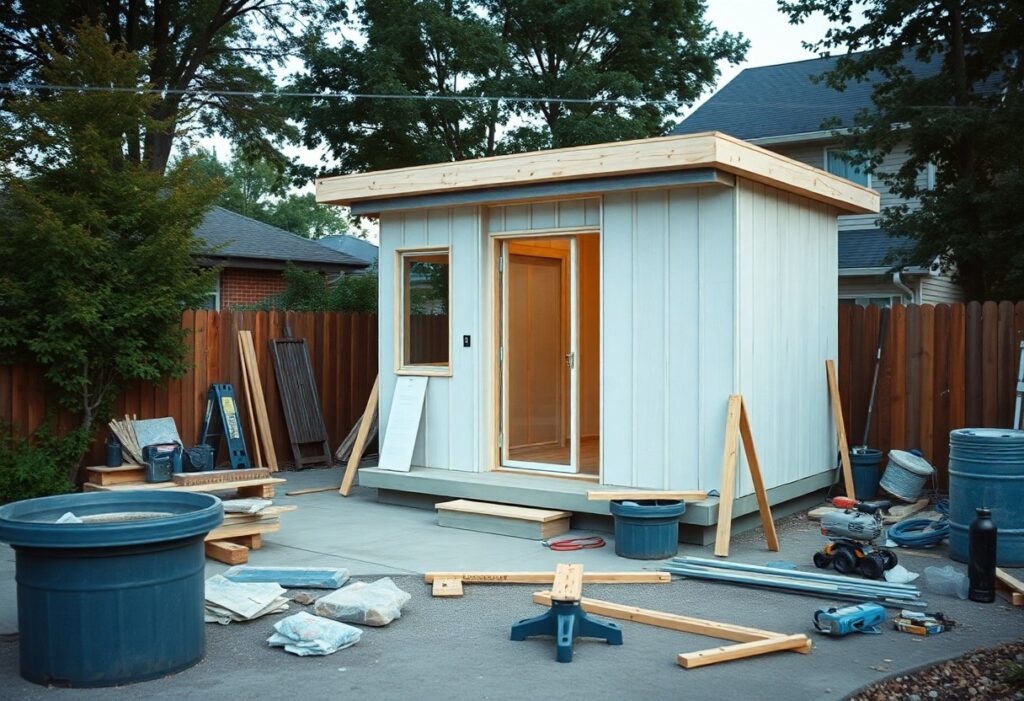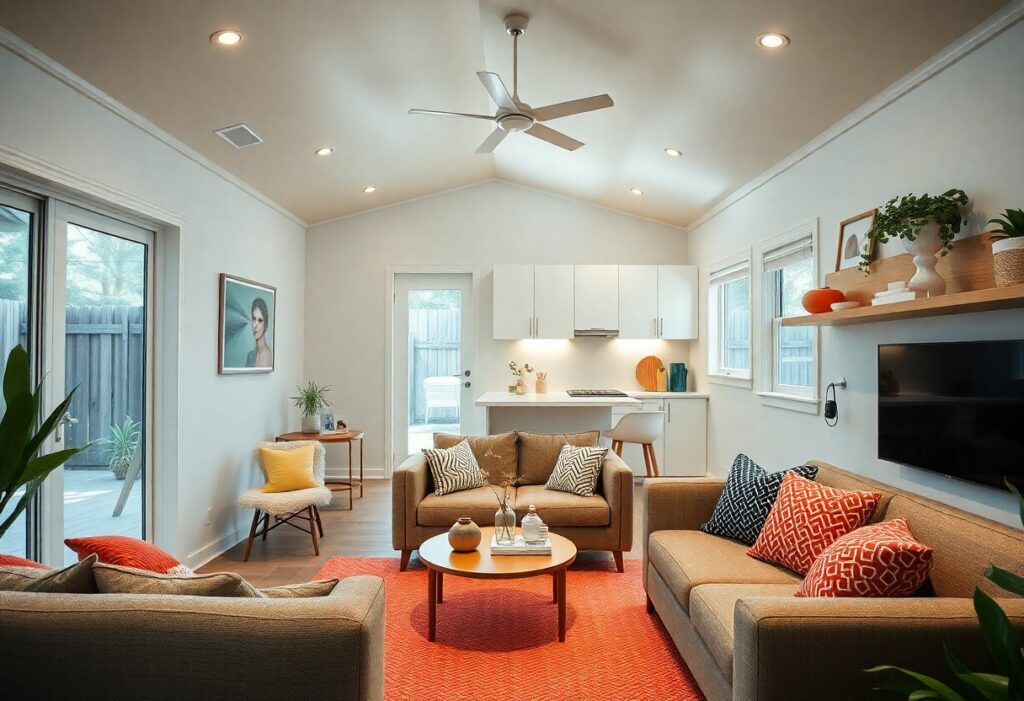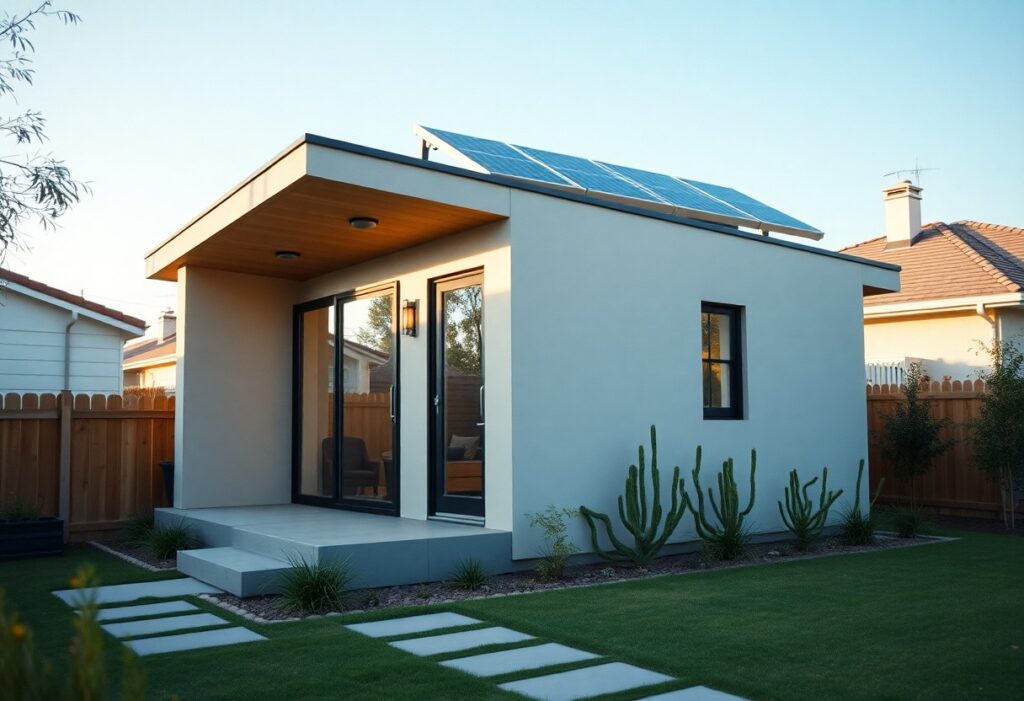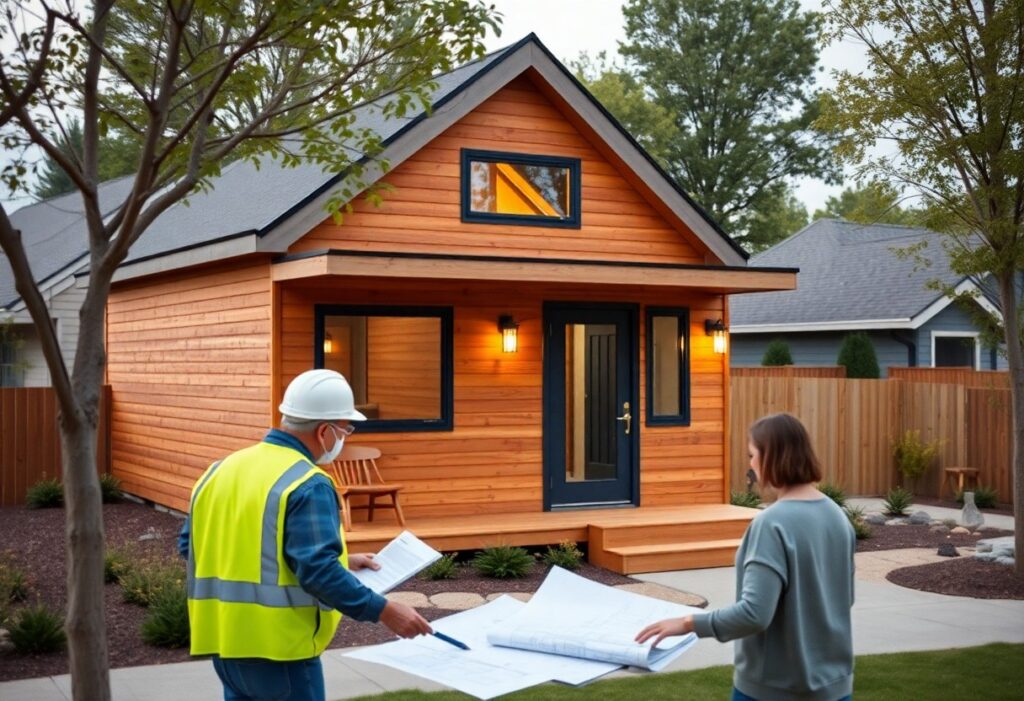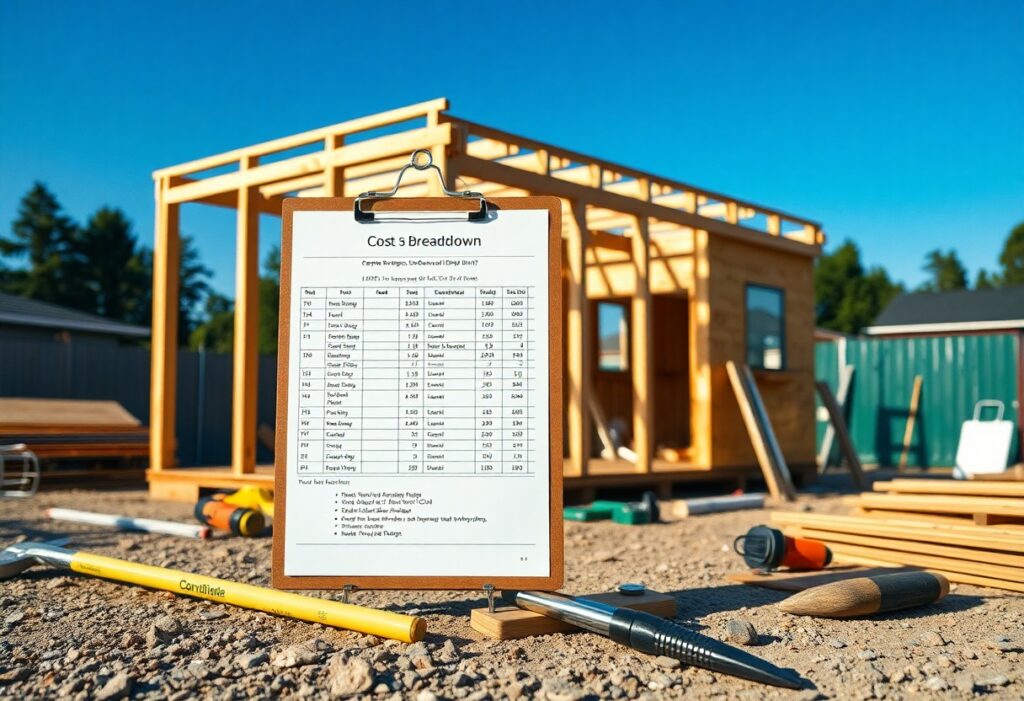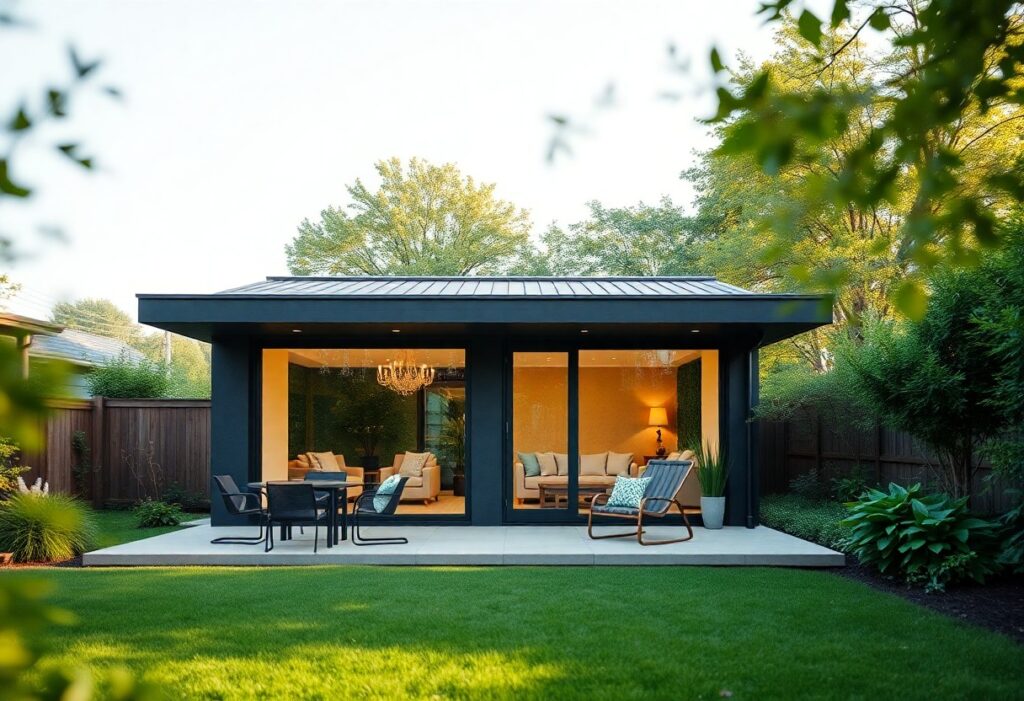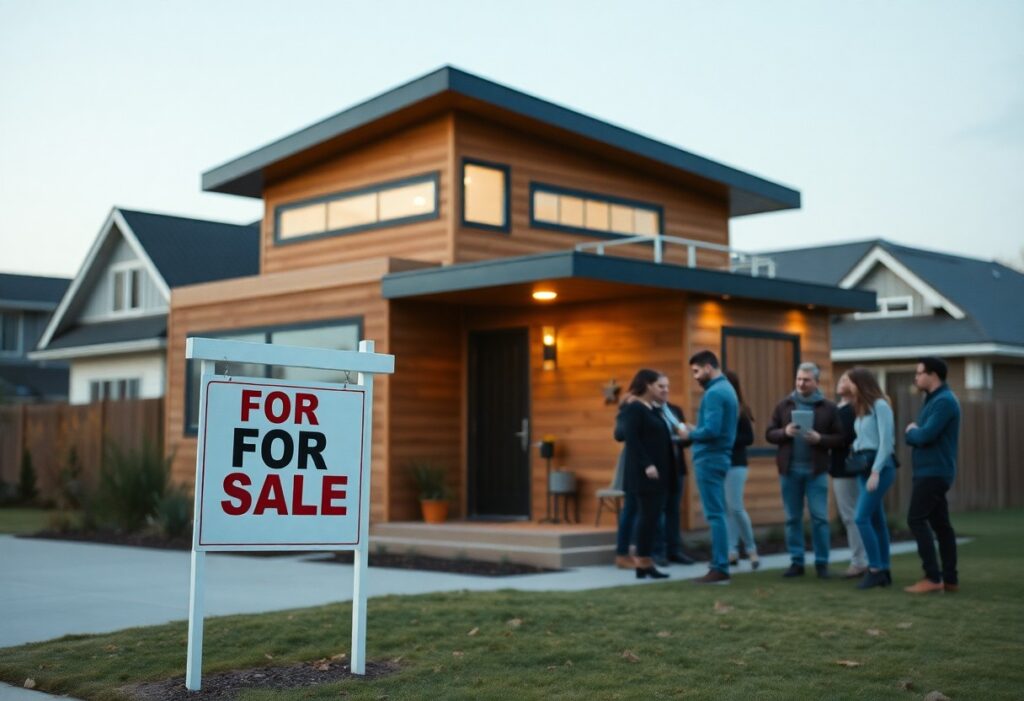Many property owners see the potential of Accessory Dwelling Units (ADUs) as a way to enhance their real estate value and generate additional income. Understanding how to effectively finance your ADU can be a game changer in your investment journey. In this post, we’ll explore various financing options that can help you fund your ADU project, maximizing your return on investment. For a more detailed approach, check out our Guide For Building An ADU: Maximize Your Property’s Value.
Key Takeaways:
- Multiple Financing Options: Explore various methods such as home equity loans, personal loans, or construction loans to fund your ADU project.
- Government Programs: Investigate local and federal programs that may offer grants, low-interest loans, or incentives for building ADUs.
- Cost Management: Understand the full scope of expenses involved and develop a detailed budget to avoid unforeseen costs.
- Increase Property Value: Assess how adding an ADU can enhance your property’s market value, making it a worthwhile investment.
- Professional Guidance: Consult with real estate experts or financial advisors to navigate the complexities of ADU financing effectively.
Understanding Accessory Dwelling Units (ADUs)
While navigating the real estate landscape, you may come across the term Accessory Dwelling Units, or ADUs. These additional living spaces on your property can play a key role in enhancing your investment. To explore more about financing options, refer to this ADU Financing: Guide to Funding your Accessory Dwelling ….
Definition and Types of ADUs
After understanding the basics, it’s important to know the different types of ADUs available:
| Attached ADU | An extension or conversion of an existing structure. |
| Detached ADU | A stand-alone unit separate from the main home. |
| Garage Conversion | Transforming a garage into a livable space. |
| Basement ADU | Utilizing basement space for additional living quarters. |
| Mobile Home ADU | Setting up a manufactured home on the property. |
This comprehensive look at ADU types helps you identify what might work best for your property.
Benefits of Adding an ADU
Dwelling on the benefits of adding an ADU can significantly enhance your property’s value and versatility. With the capability to generate rental income, provide housing for family, or serve as a home office, an ADU can be a wise investment decision affecting your financial future.
In addition, an ADU can lead to increased property value, offering benefits such as passive income, the ability to accommodate multigenerational living, and enhanced property appeal. You’ll find that incorporating an ADU can optimize your use of space while providing significant financial returns. Keep in mind the potential for increased property taxes as well, but the overall positive impact can outweigh the risks substantially.
Financing Options for Your ADU
If you’re considering financing your Accessory Dwelling Unit (ADU), it’s imperative to explore the available options that align with your financial situation. Several methods can help you fund your project, from traditional loans to innovative financing solutions. Understanding these choices will empower you to make informed decisions that can lead to real estate success.
Traditional Mortgages
To fund your ADU, traditional mortgages can be a viable option. Many lenders offer specific loan products designed for home improvements, which can include constructing an ADU. By taking out a mortgage, you’ll typically enjoy lower interest rates and longer repayment terms, making it easier to manage monthly payments.
Home Equity Lines of Credit (HELOC)
About financing your ADU, a Home Equity Line of Credit (HELOC) provides flexibility by allowing you to borrow against the equity in your home. This revolving credit option can help you pay for construction costs as needed, giving you control over your budget and cash flow.
Plus, using a HELOC often features lower interest rates compared to personal loans, making it an attractive choice for many homeowners. However, it’s imperative to acknowledge that your home serves as collateral, which poses a risk. If you’re unable to make payments, you could potentially lose your home. Always weigh the pros and cons and consult a financial advisor to ensure this option suits your financial health.
Government Programs and Grants
Not every potential ADU owner knows that various government programs and grants are available to help fund your project. These resources can significantly reduce your out-of-pocket expenses, making your dream of an accessory dwelling unit more accessible. By leveraging these programs, you can achieve real estate success while creating additional living space or rental income.
Federal Assistance Programs
Above all, federal assistance programs provide you with opportunities to access low-interest loans and grants aimed at promoting affordable housing solutions. These programs can be a game-changer for your ADU financing, offering financial support and guidance throughout your project.
Local Incentives and Subsidies
To further maximize your funding options, explore local incentives and subsidies that municipalities offer for ADU projects. These incentives can come in the form of tax breaks, waived fees, or direct financial assistance.
But be sure to thoroughly research your local regulations and incentives before proceeding with your ADU project. Many areas offer substantial financial benefits for homeowners looking to build accessory dwelling units, such as reduced permit fees and low-interest loans. Additionally, there may be specific guidelines that you must follow to qualify for these benefits, making it necessary to stay informed about the requirements and application processes in your locality. Utilizing these local incentives can lead to significant cost savings and help ensure your project is a success.
Creative Financing Solutions
After exploring traditional financing options, it’s time to consider creative financing solutions that can help you fund your Accessory Dwelling Unit (ADU). These innovative methods not only expand your possibilities but also allow you to leverage partnerships and unique investment strategies to achieve real estate success. Whether you’re seeking less conventional lending routes or communities to rally support, the options are diverse and adaptable to your needs.
Crowdfunding and Community Investment
Community financing engages individuals and local groups to pool resources and support your ADU project. By leveraging platforms that allow you to present your vision, you can attract investors who share your goals and are excited to contribute. This not only provides you with funding but also fosters a network of community support that can enhance the overall success of your project.
Rent-to-Own and Lease Options
One effective strategy for financing your ADU is to consider rent-to-own and lease options. These arrangements allow you to occupy the property while gradually purchasing it, providing a flexible path to ownership. You can negotiate terms that work best for your budget, securing a roof over your head as you plan for the future.
Understanding rent-to-own and lease options means recognizing how monthly payments contribute to your eventual purchase of the property. This approach can open doors for you, especially if traditional loans are out of reach. Be attentive to contracts and any hidden fees to safeguard your investment. Additionally, it’s key to ensure that you have a clear plan for transitioning from renting to owning, as misalignment here can lead to potential complications. By maintaining an open dialogue with your landlord, you’ll foster a positive relationship that supports your long-term success.
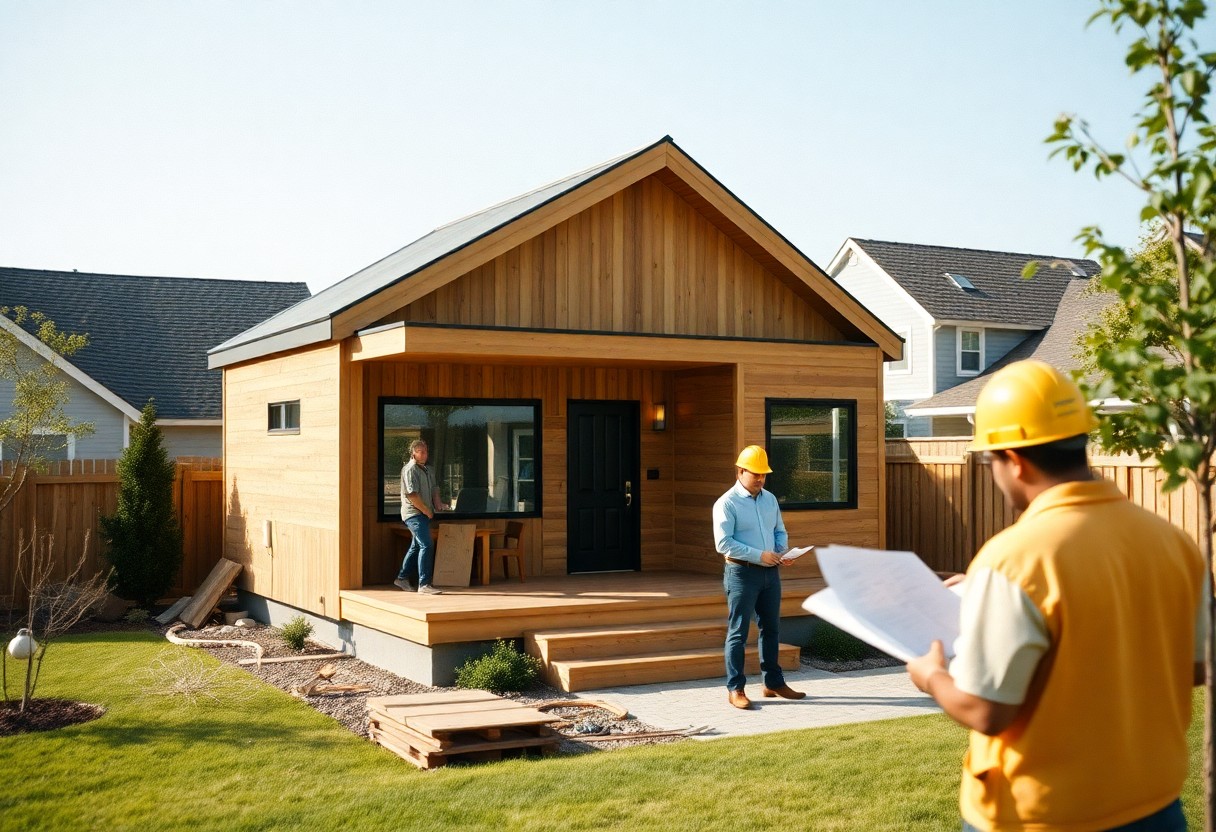
Choosing the Right Financing Strategy
To successfully fund your accessory dwelling unit (ADU), it’s vital to choose the right financing strategy tailored to your unique circumstances. Consider various options, such as personal loans, home equity loans, or construction financing, and evaluate how each aligns with your budget and goals. The right strategy will not only ease your financial burden but also enhance your real estate portfolio’s potential for success.
Assessing Your Financial Situation
Below are some key aspects to consider when evaluating your financial situation. Start by reviewing your current income, expenses, and credit score, as this information will help determine your borrowing capacity. Additionally, consider any existing debts and how they may impact your ability to secure funding for your ADU project.
Long-Term Financial Planning
By developing a long-term financial plan, you can ensure that your ADU project aligns with your future goals. It’s important to think about how financing your ADU will fit into your overall financial strategy, while factoring in potential rental income and property value appreciation.
Plus, considering your long-term financial goals means you may want to explore financing options that offer lower interest rates or favorable repayment terms. A well-structured plan enables you to maximize your investment, minimize financial strain, and maintain flexibility in your budget. By staying informed about market trends and estimating your property appreciation, you can make smarter decisions that influence your overall financial health and support your aspirations in real estate success.
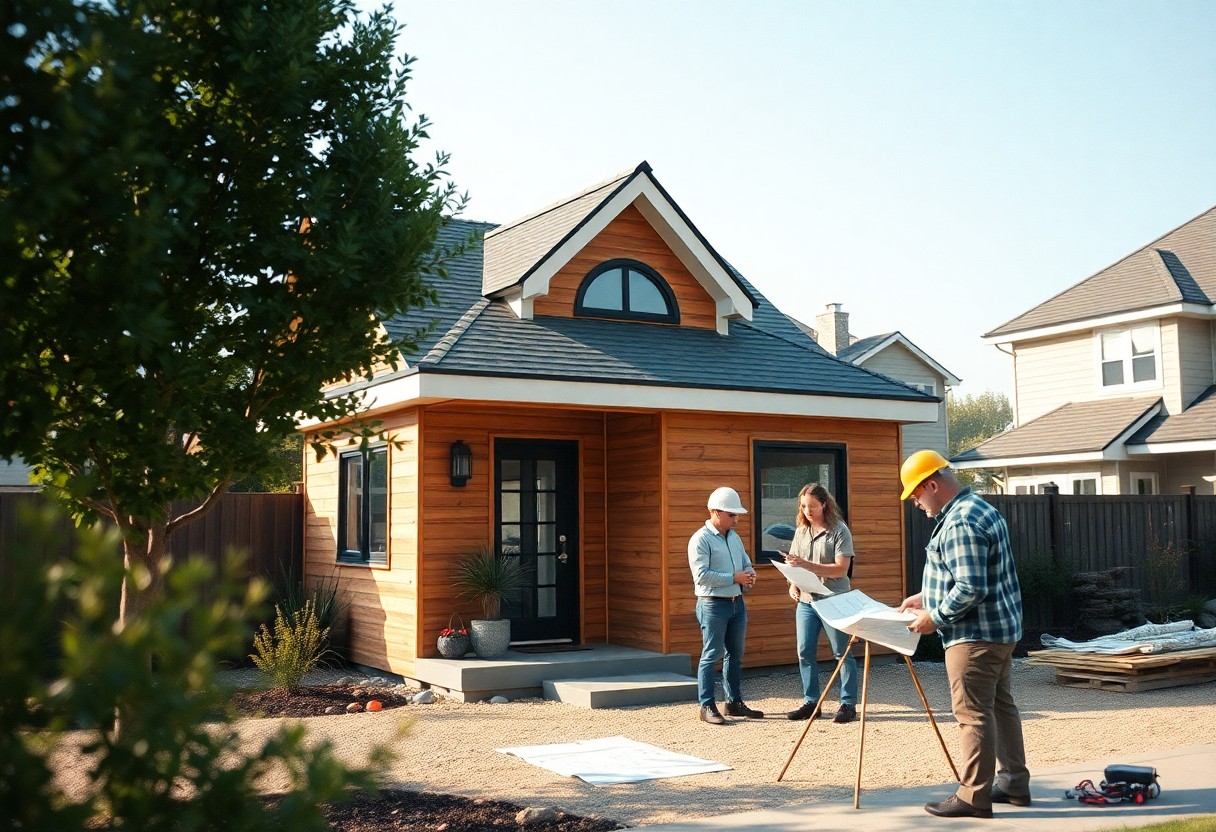
Common Pitfalls in ADU Financing
Despite the advantages of financing an Accessory Dwelling Unit (ADU), many homeowners encounter pitfalls that can derail their plans. From underestimating costs to failing to research available financing options, these mistakes can lead to financial strain and project delays. By being aware of these common issues, you can navigate the financing process more effectively and set yourself up for success.
Understanding Costs and Budgeting
Costs associated with building an ADU can easily spiral out of control if not carefully managed. Make sure to account for construction, permits, utility connections, and landscaping to ensure that your budget encompasses all necessary expenses. Accurate budgeting is key to avoiding financial setbacks during the construction process.
Navigating Zoning and Permits
For your ADU project to succeed, understanding local zoning laws and securing necessary permits is important. Research your local regulations to identify what is permissible, as these can vary significantly by area.
Even a minor oversight in the zoning and permitting process can lead to costly delays or even project cancellation. You must check with your local planning department to understand required permits and zoning restrictions that may affect your build. It’s important to gather all necessary documentation and engage with professionals to ensure all codes are met. This proactive approach allows you to avoid frustration and unexpected costs down the road.
1. Explore various financing options for ADUs.
2. Understand local regulations and permits required.
3. Consider using home equity for funding.
4. Investigate government grants and programs available.
5. Assess rental income potential from your ADU.
6. Partner with experienced professionals for guidance.
Final Words
The journey to financing your accessory dwelling unit (ADU) doesn’t have to be overwhelming. By exploring various funding options such as personal loans, home equity lines of credit, or specialized ADU financing programs, you can find the best fit for your needs. Understanding the benefits of each can empower you to make informed decisions that enhance both your property value and rental potential. With the right approach, your ADU can be a significant asset in your real estate portfolio, setting the stage for your success.
FAQ
Q: What financing options are available to fund an Accessory Dwelling Unit (ADU)?
A: There are several financing options available for funding an ADU, including home equity loans, personal loans, and construction loans. Home equity loans allow you to borrow against the equity in your current home, while personal loans offer unsecured financing. Construction loans are specifically designed to cover the costs of building an ADU and are typically short-term loans that convert to a mortgage once the construction is complete. Additionally, some homeowners may consider government-backed loans like FHA or VA loans, depending on eligibility.
Q: How does the permitting process affect ADU financing?
A: The permitting process is crucial when financing an ADU as lenders often require proof of permits before approving a loan. It is important to have plans in place that comply with local zoning laws and building codes, as this can impact the appraised value of the property and the amount a lender is willing to finance. Homeowners should work closely with their municipality to ensure all necessary permits are acquired prior to applying for financing.
Q: Can I use rental income from my ADU to qualify for financing?
A: Yes, many lenders will consider potential rental income when evaluating your mortgage application for ADU financing. This can improve your debt-to-income ratio, making it easier to qualify for a loan. However, this generally requires a formal rental appraisal or documentation outlining the expected income. Lenders want to ensure that the projected rental income is achievable and will contribute to your overall financial stability.
Q: What costs should I anticipate when financing an ADU?
A: When financing an ADU, homeowners should expect a variety of costs beyond construction expenses. These may include permitting fees, architectural design costs, utility connections, insurance, and potential landscaping expenses. It is important to budget for these additional costs early in the planning process to avoid any surprises that could impact financing. A thorough cost analysis will help in determining the total investment required for the project.
Q: Are there any specific grants or financial assistance programs for building ADUs?
A: Some local and state programs offer grants or low-interest loans specifically aimed at encouraging ADU construction to address housing shortages. These initiatives may vary significantly based on location, so it’s beneficial to research local housing authorities or community development organizations. Homeowners may also find programs focusing on affordable housing or energy-efficient construction that can provide financial support or incentives for ADU projects.

